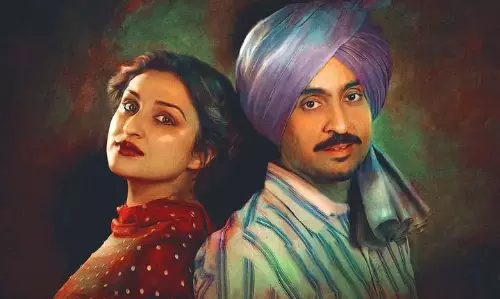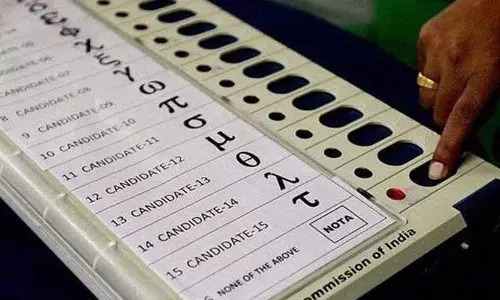
Nobel Peace Prize and India
text_fieldsThis year's Nobel Peace Prize was won by ICAN (International Campaign to Abolish Nuclear Weapons), a civil society coalition of 468 partner organizations, that aims at warning the world the world about the consequences of nuclear war, and led by Ms Beatrice Fihn. As an organization formed just ten years ago, the achievements made by the body within such a short span are significant. The treaty it presented before the General Assembly last July with the goal of abolishing nuclear weapons from the world, received wide acceptance. And ICAN was able to get 122 countries to sign up to the treaty. It was in recognition of such ground-breaking efforts that the Nobel Prize committee selected it for the award.
It is not for the first time that a movement or an organization, as opposed to an individual, won the Nobel Prize. Earlier, bodies including the European Union had won the Prize, but all of them had triggered varying degrees of political controversy that could not be ignored. As different from all that, it is noteworthy than ICAN's winning the Prize has met with international acclaim. But the nuclear powers of the world have been adopting an entirely negative approach to ICAN though it did pave a new path towards a peaceful world. And sadly enough, our country is one among them.
The 'war' on ICAN was declared by nuclear powers including India in the form of a boycott of the Award ceremony held at Oslo on 10 December. When the Treaty on the Prohibition of Nuclear Weapons was put to vote, these countries were diplomatically abstaining from that. And in the vanguard of the boycotting countries were the same nations who ceaselessly release statements against the nuclear tests by North Korea and imposing sanctions against that country. Unfortunately, Modi's India has joined this alliance of countries, making a major departure from our declared positions. And at the very venue of Oslo's Nobel Award ceremony, these powers had to face very strong criticisms.
The recipient of the award on behalf of ICAN - and the living martyr of the Hiroshima tragedy Setsuko Thurlow - spoke in severe condemnation of those countries, and the same was underlined by Beatrice Fihn who spoke after her. In her short address, Ms Fihn laid bare the customary rationale put forth by the nuclear powers. Her words mentioned the only two choices before the world: "A choice between the two endings: the end of nuclear weapons or the end of us." Her talk, which ran like poetry, also exhorted countries to make the right choices, some of them going like this: "United States, choose freedom over fear", "India, choose sense over senselessness", "France, choose human rights over terror" and "Israel, choose common sense over obliteration".
ICAN executive director's speech, which had attracted global attention, also makes it clear how reactionary India's policies are after the assumption of office by Narendra Modi. All our previous prime ministers had cautioned the world about the danger of nuclear weapons. And one of them, Rajiv Gandhi, even declared it as the most concrete form of extremist philosophy. At the same time when the country was involved in experiments for acquiring nuclear technology and in signing treaties with several countries to that end, India had kept safely away from aligning with nuclear powers. And during the tenure of the Vajpayee and Manmohan Singh governments, India did play a leading role among nations for nuclear non-proliferation treaties.
But with Modi's coming to power, things took a U-turn. Indications of this could be seen right in the election manifesto released by the National Democratic Alliance (NDA) in 2014. Its items, which few took serious note of, started getting implemented one by one by Modi. The foreign trips by Modi are not to be viewed like the trolls watched in the social media. No one should lose sight of the fact that in each trip at least one agreement is reached regarding nuclear treaty. The policy of India has hitherto been that nuclear weapons are a self-defence umbrella, i.e. never will to be used as means of aggression or occupation.
There is reason to suspect that this policy, which has met with overall acceptance at the international level, is being re-written. That is what emerges from some BJP leaders' statements that there is nothing wrong in using nuclear weapons to counter the threats posed by North Korea and Pakistan. The Oslo meet was significant in that it exposed this hazardous policy deviation. But then why would it be that the 'Oslo event' failed to be major news for our media?























